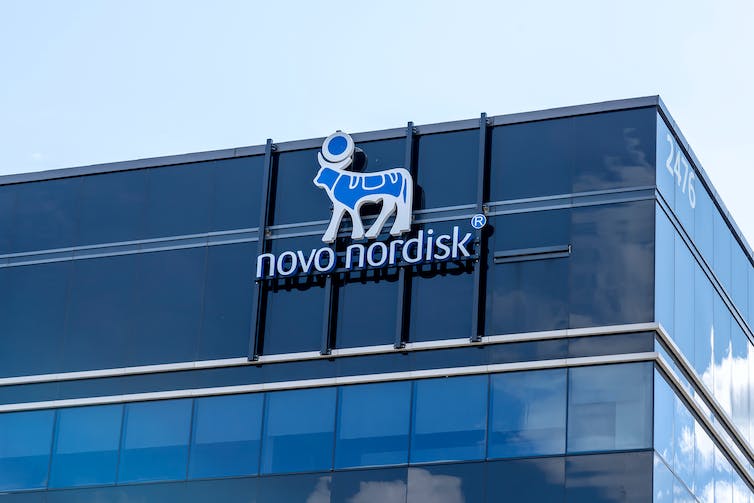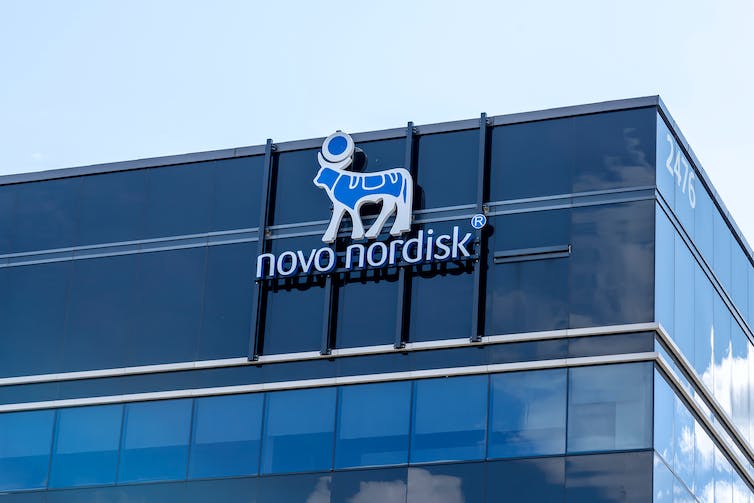A global shortage means some people with diabetes are struggling to access the drug semaglutide, which is sold under the brand name Ozempic.
The UK Department of Health and Social Care has recommended that no new patients be started on the drug. Continuing shortages have also been reported in Australia and Ireland. Canada has also experienced intermittent shortages.
Ozempic has been used in recent years to help people with diabetes manage their blood sugar levels. But in 2021, a clinical study found that semaglutide could also help people lose weight due to its ability to suppress appetite hormones. This has led to a global increase in interest in the drug.
The company that makes semaglutide has since licensed a version for use in weight loss (called Wegovy). But the mere demand for the drug is greater than the manufacturer is able to supply, which means some people are turning to Ozempic for off-label use (unlicensed use) to lose weight.
It is possible that due to this increased demand, the shortage of Ozempic and Wegovy in the UK could last until the end of 2024.
Why are there shortcomings?
Ozempic and Wegovy are both manufactured by the pharmaceutical company Novo Nordisk, which specializes in diabetes treatments. They are the only company in the world to produce semaglutide as they hold the patent for it.
The shortages of Ozempic and Wegovy are technically fueled by too many people using the drug off-label, causing demand to outstrip supply. But the reason more people are looking to semaglutide for weight loss in the first place may be due to social media endorsements and celebrity use, causing a surge in interest.
This isn’t the first time social media and celebrity endorsements have impacted the demand for certain drugs. For example, the shortage of hormone replacement therapy (HRT) drugs in the UK in 2022 has been linked to what has now been dubbed the Davina McCall effect after the British TV presenter spoke openly about menopause and the use of hormone replacement therapy to manage symptoms. This has reportedly led to an increase in demand for these products.
A year on, supplies of HRT have mostly recovered, but pharmacies are still closely monitoring supply. Given the global demand for semaglutide, these supply problems are expected to last much longer with the company expecting the Ozempic shortage to last in the UK until 2024.
Another problem contributing to the Ozempic shortage is that the company is experiencing problems manufacturing and supplying Wegovy, which is licensed for weight loss. Though Novo Nordisk has reportedly cut back on Wegovy’s promotion to dampen demand, people are still turning to Ozempic for weight loss. Novo Nordisk clarified, however, that the two products are not interchangeable as they are licensed for different conditions, have different doses and require different clinical evaluations.
How is this problem addressed?
In addition to the UK authorities’ recommendation not to start new patients on Ozempic, they also demanded that healthcare professionals only prescribe Ozempic for people with diabetes.

JHVEPhoto/Shutterstock
Novo Nordisk said it was doing everything it could to respond to increased demand for its products, including planning a $2.3 billion ($1.8 billion) upgrade of its manufacturing facility. This could support increased manufacturing and supply capacity from Wegovy and Ozempic.
Novo Nordisk has also called for health authorities to step in and discourage off-label prescribing. The Medicines Healthcare Products Regulatory Authority (MHRA) in the UK has also been called upon to encourage the responsible use of Ozempic. This would ensure that Ozempic products are available to people with the greatest clinical needs.
More recently, Novo Nordisk also reduced the availability of some semaglutide dosages in the United States by 50%, presumably to be more targeted in their manufacturing efforts.
What is the future of Ozempic?
Prescribers were advised to educate people about the shortage of Ozempic and to consider whether alternative medicines could be prescribed without causing harm. Ozempic should only be used for type 2 diabetes and not for weight loss. People who want to use a semaglutide for weight loss who don’t have access to Wegovy should consult their doctor for other treatment options.
Patients using Ozempic have also been encouraged to order repeat supplies ahead of time to ensure they don’t run out.
The futures of Ozempic and Wegovy are intertwined, and demand for both products shows no signs of abating despite warnings of possible side effects. Last year alone, Novo Nordisk reported nearly $9 billion (7 billion) in Ozempic sales. This figure could continue to rise given the current demand for these products.
The market for weight loss treatments is a lucrative one and is estimated to reach $100 billion (79 billion) by 2030. The market could become more stable and competitive, with Novo Nordisk providing tablet-based products. Other companies are also investigating whether different active ingredients can lead to similar weight loss as semaglutide.
If these prove effective, this could also help alleviate the semaglutide supply shortage. When semaglutide patents expire starting in 2030, this could further open an opportunity for more companies to enter the market, making the product more readily available.
And, depending on the country, the patent may actually expire sooner. In Brazil, for example, it already expires in 2026.
#Ozempic #shortage #heres
Image Source : theconversation.com

